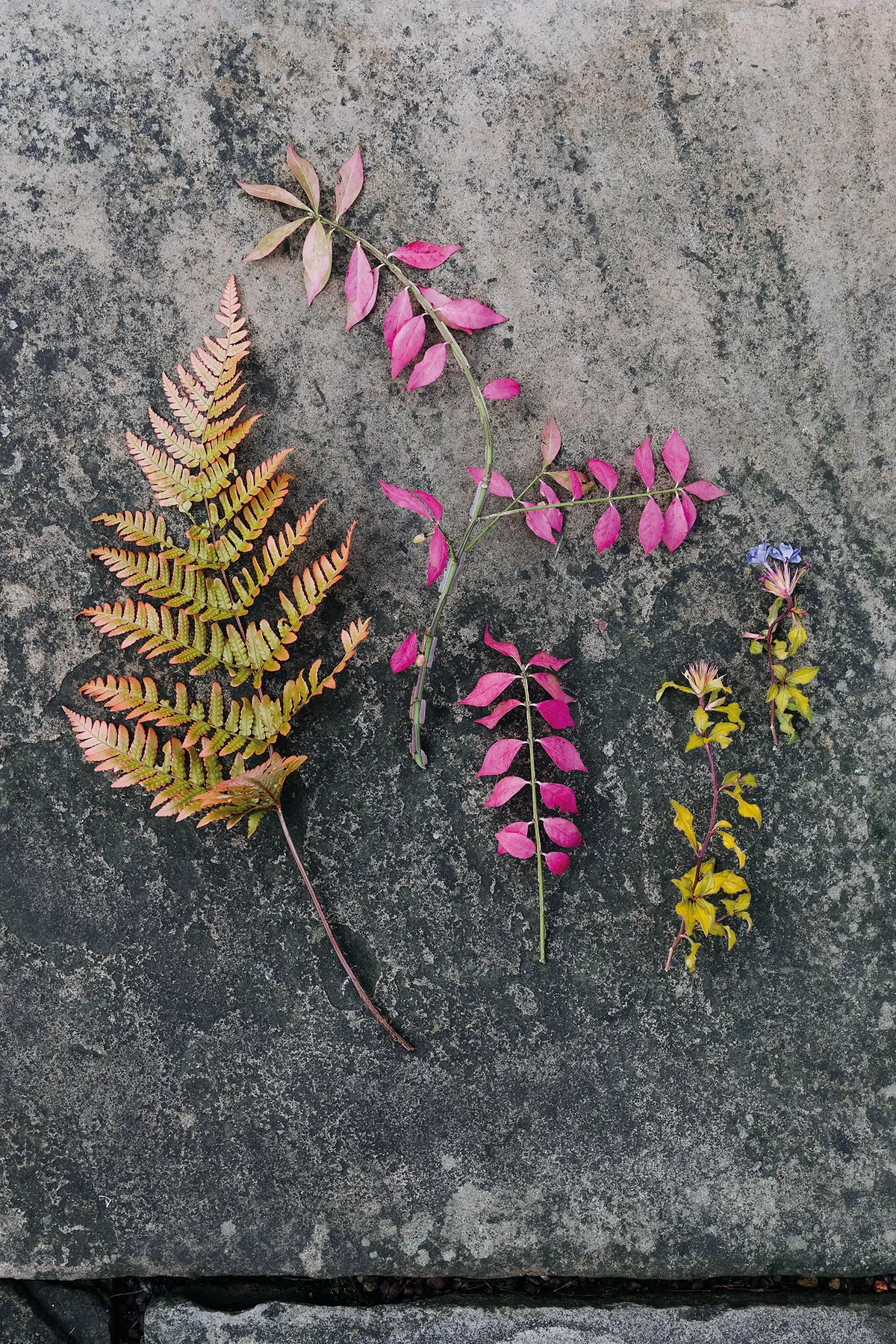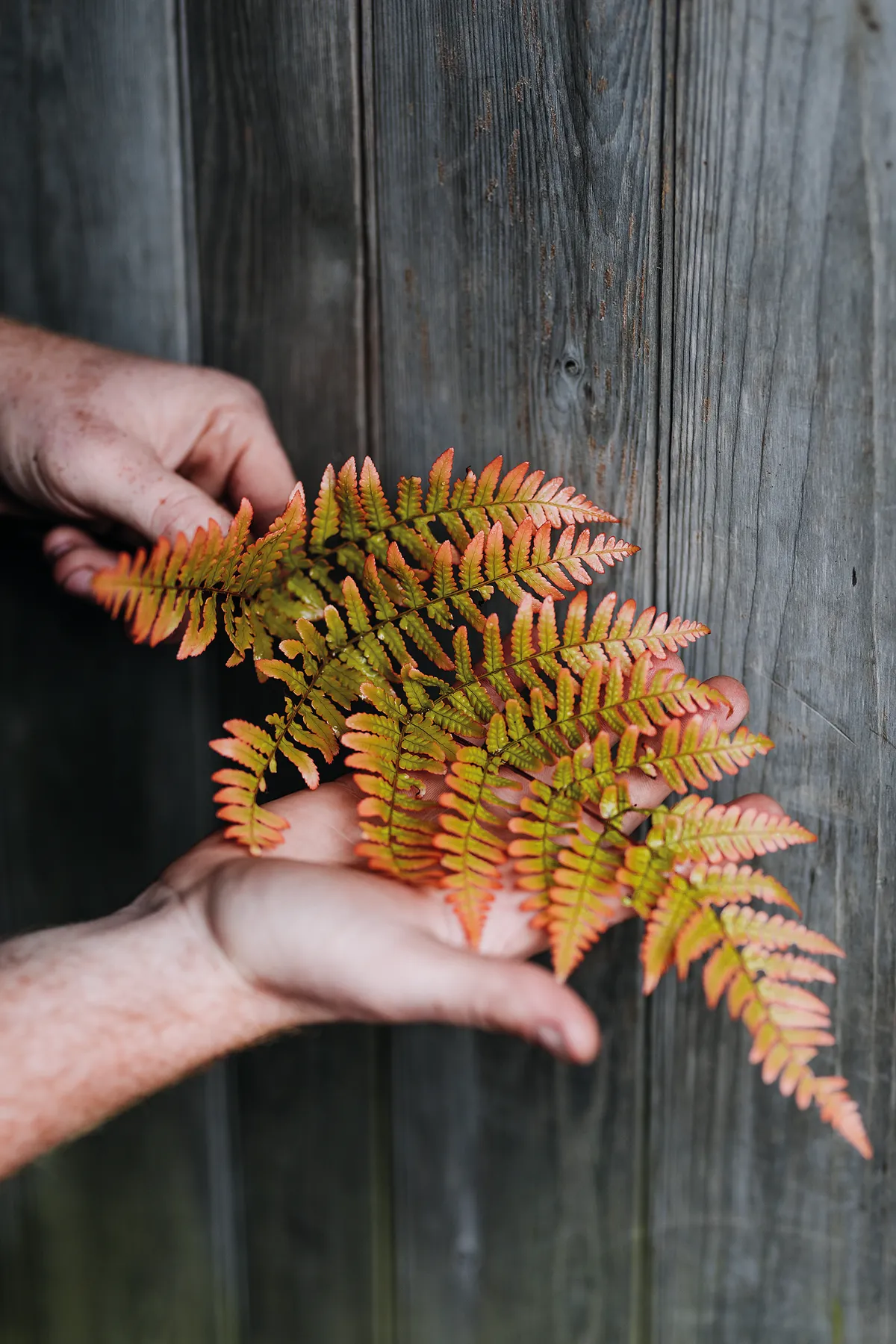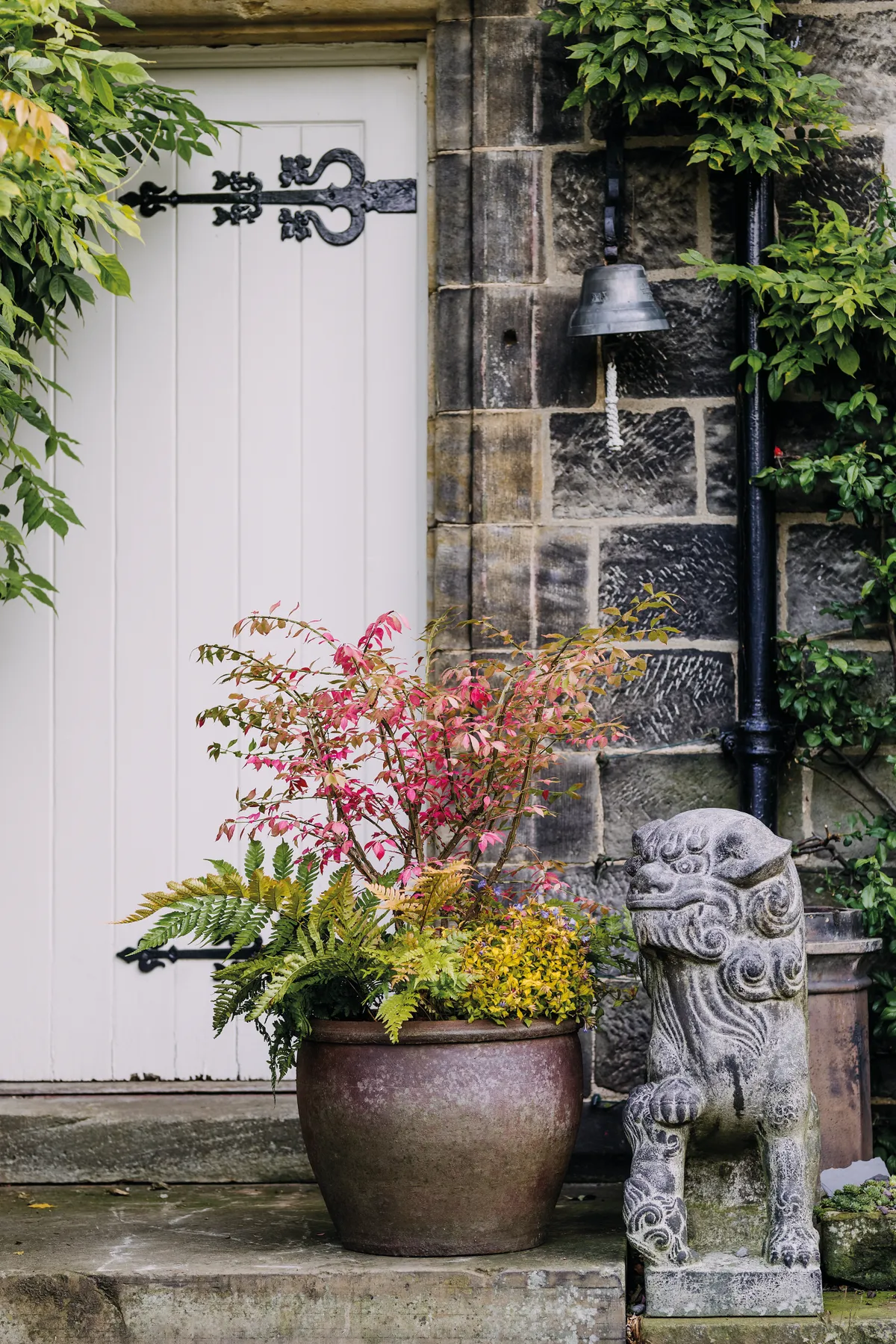The russet tones of late summer signify the transition into autumn. The rich reds and burnt oranges of senescing foliage give a hearty warmth to the landscapes that surround us. The intense, red leaves of Euonymus alatus ‘Compactus’ is the first shrub in my garden to express the coming of autumn. Coupled with the understorey of Ceratostigma willmottianum Sapphire Ring (= ‘Lissbrill’) and semi-evergreen Dryopteris erythrosora, it forms a valuable combination for a shady corner.
Here's our guide on how to care for euonymus
How to achieve the look
Container and composition
This earthenware terracotta container complements the russet tones of the planting and completes the late summer and autumnal effect. Euonymus alatus ‘Compactus’ gives interest all year round but comes into its own when the leaves glow burnt pinky-red in mid- to late September. Its winged stems and open habit look good even when the leaves have fallen. The burnt-orange, emerging foliage of Dryopteris erythrosora and golden-yellow leaves of Ceratostigma willmottianum Sapphire Ring (=’Lissbrill’) stand out against the brown tones of the pot, lighting up this shady corner. I have underplanted this semi-permanent combination with the showy, February snowdrop Galanthus ‘S Arnott’.
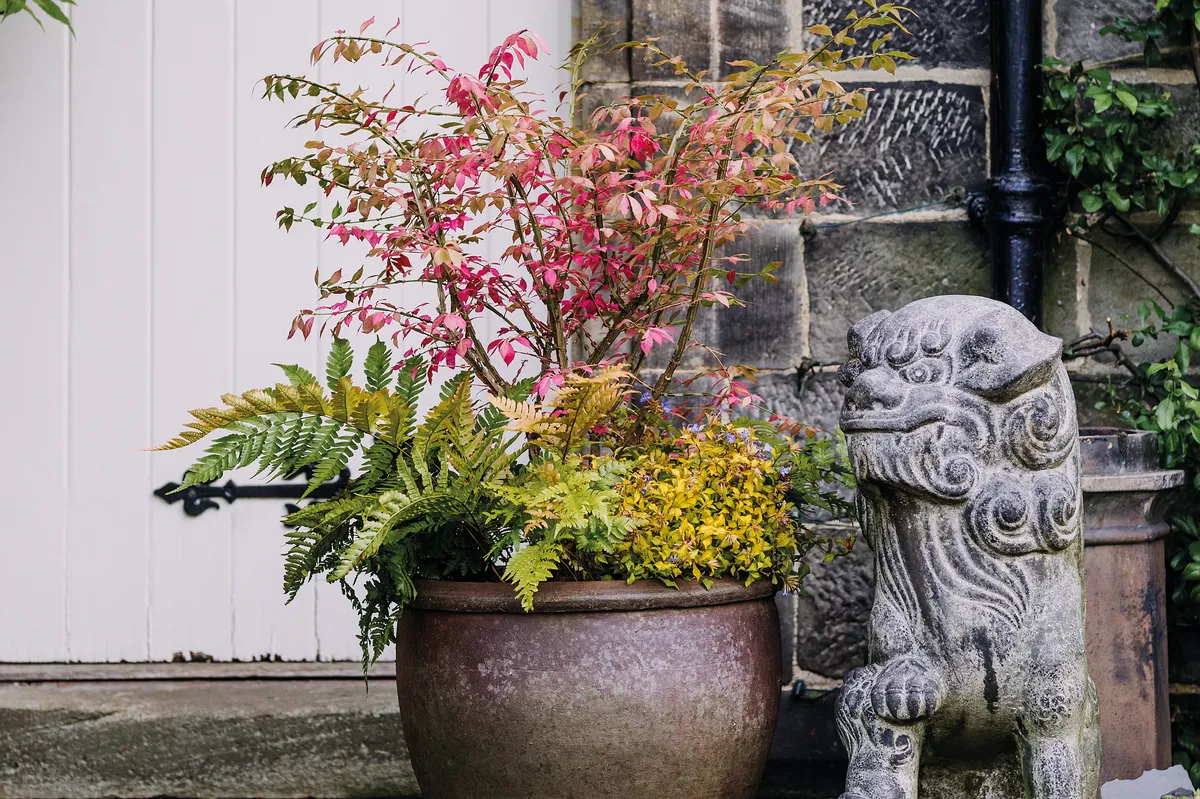
Care and cultivation
Semi-permanent planters need relatively little care compared with seasonally changed annual displays, but still require some thought. I replant this pot every two to three years to renew the exhausted compost. When preparing pots that are not intended to be replanted every year, I use a loam-based John Innes compost rather than a potting compost that will disappear as it degrades. It is also useful to add a slow-release fertiliser, such as 16-18 month Osmocote Exact, which gives a steady and balanced supply of nutrients. Both the Ceratostigma and Dryopteris require dividing to maintain their vigour and health. This is best done in spring to maintain the desired late-summer/autumn display.
Plants
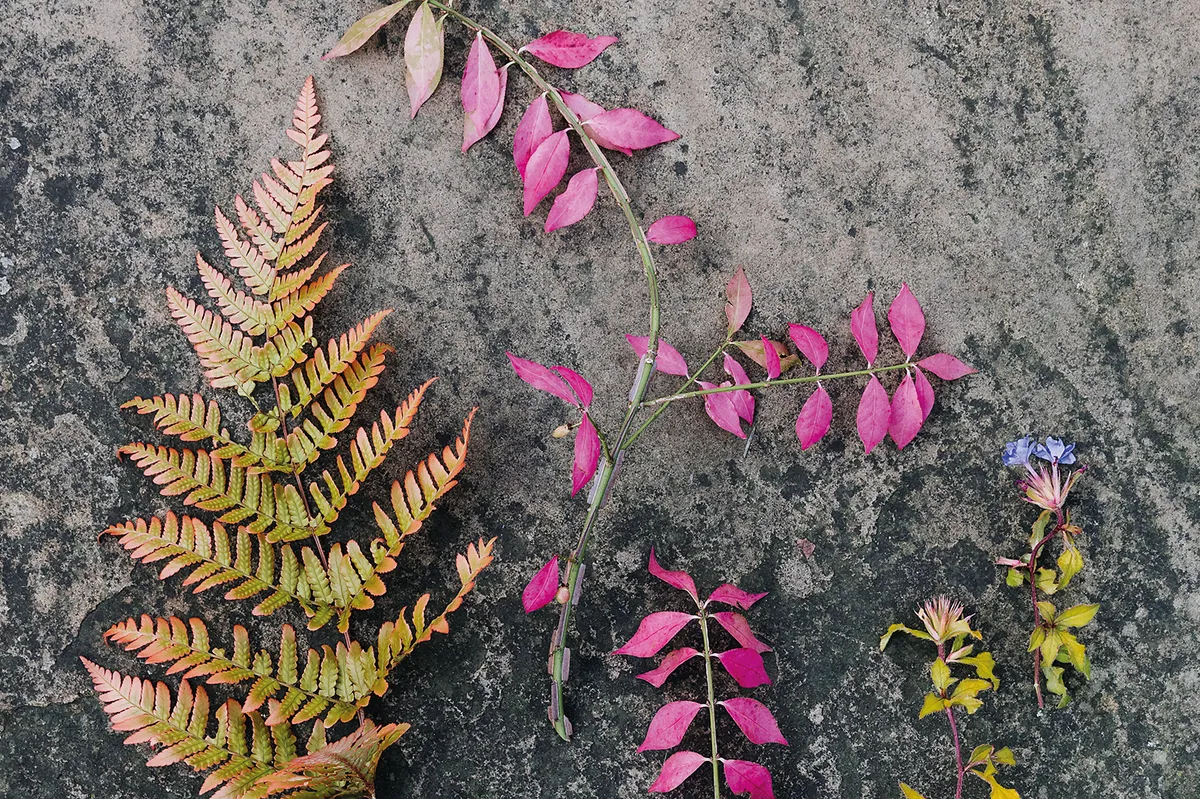
From left to right: Dryopteris erythrosora Attractive, clump-forming, deciduous fern. Prefers moist, humus-rich soil and partial shade. 75cm. AGM. RHS H4, USDA 5a-8b. Euonymus alatus ‘Compactus’ A medium-sized shrub suitable for a small garden or pot. One of the first shrubs to enter into autumn. 1.2m. AGM. RHS H6, USDA 4a-8b. Ceratostigma willmottianum Sapphire Ring (= ‘Lissbrill’) Compact, prostrate shrub that makes good groundcover. Can be cut hard back every spring. Striking, golden foliage and sky-blue flowers from August to September. Full sun or partial shade. 80cm. RHS H5.
